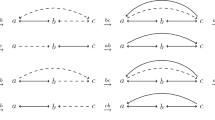Abstract
In this paper we introduce the problem of Continuous Gossip in which rumors are continually and dynamically injected throughout the network. Each rumor has a deadline, and the goal of a continuous gossip protocol is to ensure good “Quality of Delivery,” i.e., to deliver every rumor to every process before the deadline expires. Thus, a trivial solution to the problem of Continuous Gossip is simply for every process to broadcast every rumor as soon as it is injected. Unfortunately, this solution has high per-round message complexity. Complicating matters, we focus our attention on a highly dynamic network in which processes may continually crash and recover. In order to achieve good per-round message complexity in a dynamic network, processes need to continually form and re-form coalitions that cooperate to spread their rumors throughout the network. The key challenge for a Continuous Gossip protocol is the ongoing adaptation to the ever-changing set of active rumors and non-crashed process. In this work we show how to address this challenge; we develop randomized and deterministic protocols for Continuous Gossip and prove lower bounds on the per-round message-complexity, indicating that our protocols are close to optimal.
Similar content being viewed by others
References
Aspnes J.: Spreading rumors rapidly despite an adversary. J. Algorithms 26, 386–411 (1998)
Birman K.P., Hayden M., Ozkasap O., Xiao Z., Budiu M., Minsky Y.: Bimodal multicast. ACM Trans. Comput. Syst. 17(2), 41–86 (1999)
Bollobas B., de la Vega W.F.: The diameter of random regular graphs. Combinatorica 2(2), 125–134 (1982)
Boyd S., Ghosh A., Prabhakar B., Shah D.: Randomized gossip algorithms. IEEE Trans. Inf. Theory 52(6), 2508–2530 (2006)
Capalbo, M.R., Reingold, O., Vadhan, S.P., Wigderson, A.: Randomness conductors and constant-degree lossless expanders. In: STOC 2002, pp. 659–668 (2002)
Chlebus B.S., Kowalski D.R.: Robust gossiping with an application to consensus. J. Comput. Syst. Sci. 72(8), 1262–1281 (2006)
Chlebus, B.S., Kowalski, D.R.: Time and communication efficient consensus for crash failures. In: DISC 2006, pp. 314–328 (2006)
Chlebus, B.S., Kowalski, D.R., Shvartsman, A.A.: Collective asynchronous reading with polylogarithmic worst-case overhead. In: STOC 2004, pp. 321–330 (2004)
Demers, A., Greene, D., Hauser, C., Irish, W., Larson, J., Shenker, S., Sturgis, H., Swinehart, D., Terry, D.: Epidemic algorithms for replicated database maintenance. In: PODC 1987, pp. 1–12 (1987)
Diks K., Pelc A.: Optimal adaptive broadcasting with a bounded fraction of faulty nodes. Algorithmica 28(1), 37–50 (2000)
Doerr, B., Friedrich, T., Sauerwald, T.: Quasirandom rumor spreading: expanders, push vs pull, and robustness. In: ICALP 2009. pp. 366–377
Eugster P., Guerraoui R., Handurukande S., Kermarrec A-M., Kouznetsov P.: Lightweight probabilistic broadcast. ACM Trans. Comput. Syst. 21(4), 341–374 (2003)
Galil, Z., Mayer, A., Yung, M.: Resolving message complexity of Byzantine agreement and beyond. In: FOCS 1995, pp. 724–733 (1995)
Georgiou, C., Gilbert, S., Guerraoui, R., Kowalski, D.R.: On the complexity of asynchronous gossip. In: PODC 2008, pp. 135–144 (2008)
Georgiou C., Kowalski D.R., Shvartsman A.A.: Efficient gossip and robust distributed computation. Theor. Comput. Sci. 347(1-2), 130–166 (2005)
Hromkovic J., Klasing R., Pelc A., Ruzika P., Unger W.: Dissemination of Information in Communications Networks: Broadcasting, Gossiping, Leader Election, and Fault-Tolerance. Springer, Berlin, Heidelberg (2005)
Karp, R., Schindelhauer, C., Shenker, S., Vocking, B.: Randomized Rumor Spreading. In: FOCS 2000, pp. 565–574 (2000)
Kempe D., Kleinberg J., Demers A.: Spatial gossip and resource location protocols. J. ACM 51, 943–967 (2004)
Kermarrec A., Massoulie L., Ganesh A.: Probabilistic reliable dissemination in large-scale systems. IEEE Trans. Parallel Distrib. Syst. 14(3), 248–258 (2003)
Kowalski, D.R., Strojnowski, M.: On the communication surplus incurred by faulty processors. In: DISC 2007, pp. 328–342 (2007)
Kuhn, F., Lynch, N., Oshman, R.: Distributed computation in dynamic networks. In: STOC 2010, pp. 513–522 (2010)
Pelc A.: Fault-tolerant broadcasting and gossiping in communication networks. Networks 28, 143–156 (1996)
Pinsker, M.S.: On the complexity of a concentrator. In: Proceedings of 7th Annual Teletraffic Conference (1973)
Pippenger N.: Sorting and selecting in rounds. SIAM J. Comput. 16, 1032–1038 (1987)
Saks, M., Shavit, N., Woll, H.: Optimal time randomized consensus–making resilient algorithms fast in practice. In: SODA 1991, pp. 351–362 (1991)
Ta-Shma, A., Umans, C., Zuckerman, D.: Loss-less condensers, unbalanced expanders, and extractors. In: STOC 2001, pp. 143–152 (2001)
van Renesse, R., Minsky, Y., Hayden, M.: A gossip-style failure detection service. In: Proceedings of IFIP International Conference on Distributed Systems Platforms and Open Distributed Processing, pp. 55–70 (1998)
Author information
Authors and Affiliations
Corresponding author
Additional information
This work is supported by UCY (RA) CS-CG2011, NUS (FRC) R-252-000-443-133, and the Engineering and Physical Sciences Research Council [grant numbers EP/G023018/1, EP/H018816/1].
Rights and permissions
About this article
Cite this article
Georgiou, C., Gilbert, S. & Kowalski, D.R. Meeting the deadline: on the complexity of fault-tolerant continuous gossip. Distrib. Comput. 24, 223–244 (2011). https://doi.org/10.1007/s00446-011-0144-6
Received:
Accepted:
Published:
Issue Date:
DOI: https://doi.org/10.1007/s00446-011-0144-6




